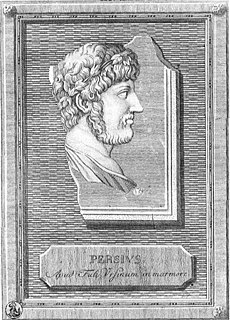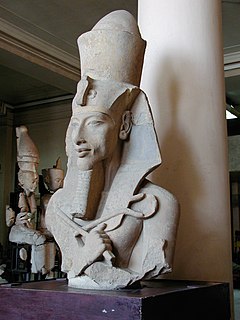A Quote by Marcus Tullius Cicero
Everything that thou reprovest in another, thou must most carefully avoid in thyself.
[Lat., Omnia quae vindicaris in altero, tibi ipsi vehementer fugienda sunt.]
Related Quotes
Antiquity! thou wondrous charm, what art thou? that being nothing art everything? When thou wert, thou wert not antiquity - then thou wert nothing, but hadst a remoter antiquity, as thou calledst it, to look back to with blind veneration; thou thyself being to thyself flat, jejune, modern! What mystery lurks in this retroversion? or what half Januses are we, that cannot look forward with the same idolatry with which we for ever revert! The mighty future is as nothing, being everything! the past is everything, being nothing!
Why dost thou heap up wealth, which thou must quit,
Or what is worse, be left by it?
Why dost thou load thyself when thou 'rt to fly,
Oh, man! ordain'd to die?
Why dost thou build up stately rooms on high,
Thou who art under ground to lie?
Thou sow'st and plantest, but no fruit must see,
For death, alas! is reaping thee.
Owe no man any thing, but to love one another: for he that loveth another hath fulfilled the law. For this, Thou shalt not commit adultery, Thou shalt not kill, Thou shalt not steal, Thou shalt not bear false witness, Thou shalt not covet; and if there be any other commandment, it is briefly comprehended in this saying, namely, Thou shalt love thy neighbour as thyself.
When thou art offended at any man's fault, forthwith turn to thyself and reflect in what manner thou doest error thyself. For by attending to this thou wilt quickly forget thy anger, if this consideration is also added, that the man is compelled; for what else could he do? or, if thou art able, take away from him the compulsion.
What is thy thought? There is no miracle?
There is a great one, which thou hast not read,
And never shalt escape. Thyself, O man,
Thou art the miracle. Ay, thou thyself,
Being in the world and of the world, thyself,
Hast breathed in breath from Him that made the world.
Thou art thy Father's copy of Himself,--
Thou art thy Father's miracle.
Think not so much of what thou hast not as of what thou hast: but of the things which thou hast, select the best, and then reflect how eagerly they would have been sought, if thou hadst them not. At the same time, however, take care that thou dost not, through being so pleased with them, accustom thyself to overvalue them, so as to be disturbed if ever thou shouldst not have them.










































